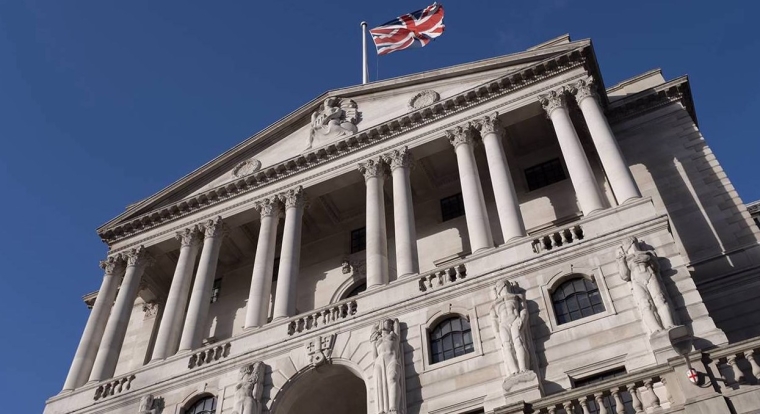
By Willem Buiter and Anne Sibert*
Amid the political turmoil of outgoing British Prime Minister Liz Truss’s short-lived government, the Bank of England has found itself in the fiscal-financial crossfire. Whatever government comes next, it is vital that the BOE learns the right lessons.
On September 23, Truss’s government announced a large, unfunded fiscal-stimulus package that undermined the BOE’s price-stability mandate and caused government-debt and foreign-exchange markets to malfunction. To prevent systemically important markets from seizing up, the BOE postponed its planned offloading of government bonds (gilts) and instead purchased more. But these unsterilised (monetised) asset purchases amount to an expansionary monetary policy, which will further frustrate the BOE’s efforts to bring down inflation – unless and until the purchases are reversed.
Unfortunately for the BOE, it had no choice. Financial stability is a precondition for sustainable price stability, so it is a central bank’s overriding concern. When the circumstances demand it, central banks must act as lenders of last resort (LOLR) to preserve or restore funding liquidity for systemically important counterparties. They also must serve as market makers of last resort (MMLR) or buyers of last resort (BOLR) to maintain or restore market liquidity in systemically important financial markets.
The BOE got its latest interventions partly right, but it also made mistakes. When market participants in the UK – notably liability-driven investment (LDI) funds – panicked, the BOE intervened, on September 28, with a powerful statement about its willingness and ability to act. Purchases would be carried out “on whatever scale is necessary” to restore orderly markets. Moreover, the Treasury would fully – and quite properly – indemnify the operation for any losses incurred.
But the BOE undermined this show of force by putting a time limit on its emergency intervention. It stated that the planned sales from its Asset Purchase Facility would be delayed from October 3 to October 31, and that it would purchase up to £5 billion ($5.4 billion, as of September 28) of gilts per day for 13 days. These dates were offered not as mere estimates but as a firm interval.
On October 10, the BOE reported that it had bought only around £5 billion of gilts in total over the course of eight daily auctions. It was a demonstration of credibility at work. If market participants believe that the MMLR is willing and able to intervene “on whatever scale is necessary” to restore order, the actual intervention required may be small. In the case of the European Central Bank’s Outright Monetary Transactions (launched in 2012), no actual purchases were needed to restore market functioning.
With £60 billion of unused capacity in its emergency facility, the BOE then announced that it would increase the maximum size of the remaining five auctions to £10 billion each. It also added index-linked gilts to the program and initiated a temporary LOLR facility, the Temporary Expanded Collateral Repo Facility, to extend further assistance to stressed LDI funds; it eased collateral requirements for its regular Indexed Long-Term Repo operations; and it made additional liquidity available through a new, permanent Short-Term Repo facility, launched the week of October 3.
Support us by going ad-free. Find out more.
ll this made sense. But the BOE’s continued insistence that its emergency gilt-purchase program would end on October 14 was unhelpful, because it contradicted the assertion that it would carry out purchases on whatever scale it deemed necessary. Moreover, that date was never credible. If bondholders were to start dumping gilts again on October 15 or any later date, the BOE would be right back to acting as a BOLR.
It is unclear whether the BOE’s emergency gilt purchases were on penalty terms, which are necessary to minimise excessive risk-taking by market participants who know that the central bank will intervene should fire sales or other dysfunctional behavior threaten market functioning. Penalty terms that apply when markets are disorderly are an important complement to well-designed regulations constraining excessive risk-taking when markets are orderly. But it can be difficult for a central bank to determine a purchase price that is both materially more attractive to would-be sellers than the disorderly market price as well as less attractive than the (unobservable) orderly market price.
A separate but important issue is that the BOE’s Monetary Policy Committee played no meaningful role in creating and implementing the emergency program. That is surprising, considering that the new gilt purchases will complicate and delay the process of bringing inflation back down to the target rate. According to a statement by the BOE’s Deputy Governor for Financial Stability, Jon Cunliffe, the MPC was merely “informed of the issues in the gilt market and briefed in advance of the operation, including its financial-stability rationale and the temporary and targeted nature of the purchases.”
By emphasising the temporary and targeted nature of the purchases, Cunliffe seemed to be suggesting that they do not constitute monetary policy operations. But, in that case, was the specific emergency program – both the unsterilised asset purchases and the postponement of the asset sales – formally recommended by the Financial Policy Committee, whose mandate is financial stability? Cunliffe’s statement is ambiguous on this question: “The FPC was engaged ahead of [the program’s] launch, recognising the risks to UK financial stability from dysfunction in the gilt market. The FPC recommended that the Bank take action, and welcomed the Bank’s plans for temporary and targeted purchases in the gilt market on financial stability grounds at an urgent pace.”
Given that these emergency operations have both financial-stability objectives and monetary-policy implications, they ought to have been properly approved by all the designated decision-making bodies – the FPC and the MPC. If that was not the case, the program’s legitimacy may be significantly undermined.
Willem H. Buiter, a former chief economist at Citibank and former member of the Monetary Policy Committee of the Bank of England, is an independent economic adviser. Anne C. Sibert, Professor of Economics at Birkbeck, University of London, is a former member of the Monetary Policy Committee of the Central Bank of Iceland. This content is © Project Syndicate, 2022, and is here with permission.
5 Comments
The reality is, UK Pension Funds placed leveraged-long-bets, the market went against them significantly and they were being margin called - hit up for more cash.
So the UK Pension Funds (to met margin calls) had to sell stocks/units/whatever of the very equities/products they were leveraged long in. Obviously this selling made the price go down further, causing a long squeeze and more margin calls [spiral].
A retail investor would just get stopped out of the market or have their account go to zero. However, the UK government/BoE decided to bail-them-out [backstop the market]. Obviously UK taxpayers are on the hook to pay this printed money back.
Then the UK decides it wants to keep printing money, well.. inflation is the increase in the money supply. It only makes sense the GBP would go down and their gilts would lose popularity.
The BoE had to step in because the stock that was plummeting in value was UK Gilts - the collateral that underpins the UK financial system. The BoE's prime purpose is financial stability - they had no choice (and only hours to spare to avoid a meltdown).
The BoE only had to create $5bn to take control of the price - and, in doing so, they increased the value of the $700bn worth of Gilts they own by many times more than that (and stabilised the currency). Nobody has to 'pay any money back'! When BoE buys Gilts it's just a debt swap (they swap debt in the form of Gilts with newly created debt in the form of Settlement Reserves). It's the same in NZ - look at the chart at the bottom of page 5 of the Govt's accounts.
The long dated bonds are 2/3 of the UK's 1.5 trillion (pound) liability-driven investment funds. They are mostly leveraged and use gilts as collateral for cash..
..in a rising interest rate environment, surely having leveraged gilts is a case of caveat emptor. $5 billion is only just the beginning.
Unfortunately for the BOE, it had no choice.
That's certainly not my view. They are picking winners and losers in the pension market.
I've worked in NZ Pensions/Super including Defined Benefit for over a decade. I doubt that the UK Pension funds have met "Prudent Person" Trustee standards in their SIPO investments.

We welcome your comments below. If you are not already registered, please register to comment
Remember we welcome robust, respectful and insightful debate. We don't welcome abusive or defamatory comments and will de-register those repeatedly making such comments. Our current comment policy is here.